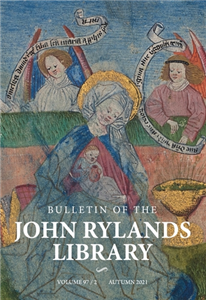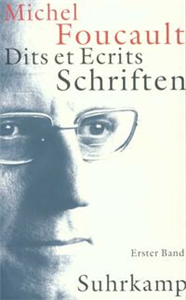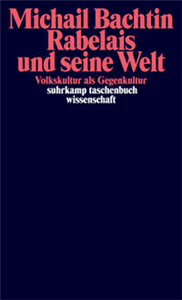Your Search Results
-
Promoted ContentHumanities & Social SciencesDecember 2021
Bulletin of the John Rylands Library 97/2
by Stephen Mossman, Cordelia Warr
The John Rylands Library houses one of the finest collections of rare books, manuscripts and archives in the world. The collections span five millennia and cover a wide range of subjects, including art and archaeology; economic, social, political, religious and military history; literature, drama and music; science and medicine; theology and philosophy; travel and exploration. For over a century, the Bulletin of the John Rylands Library has published research that complements the Library's special collections. The editors invite the submission of articles in these fields and welcome discussion of in-progress projects.
-
Promoted ContentTeaching, Language & ReferenceFebruary 2013
Ramon J. Sender's 'Cronica del alba'
by Catherine Davies, Anthony Trippett
Crónica del alba is a novel by Sender with a Civil War background, like the popular Réquiem por un campesino español, also in this series. The author evokes his childhood in rural Aragón at the beginning of the twentieth century in a book which has a charm and something of the character of The Adventures of Tom Sawyer. The young Pepe fights to believe in himself as a hero in the face of a world, and a father bent on putting him down. He is supported by his girlfriend, Valentina, who believes in him implicitly and often ends up in as much trouble as him. But there is something more here than scrapes and mischief-making. It is written by an older and disillusioned Pepe who has known real heroism and is now detained in a prison camp for Spanish Civil War refugees in southern France. The novel raises challenging questions about the loss of hope, how people cope with disillusionment, and the place of writing in that process. Moreover, since the novel reflects Sender's own childhood it sheds light on the complex relationship of fact and fiction in autobiographical novels. ;
-
 Trusted Partner
Literature & Literary StudiesJune 2012
Trusted Partner
Literature & Literary StudiesJune 2012Molière et Son Premier Tartuffe
Genèse et évolution d'une pièce à scandale
by Robert McBride
Molière et son premier Tartuffe sheds light on one of the most enduring mysteries in world theatre: the nature, structure and purpose of the first and no longer extant version of his most controversial play, Le Tartuffe. The study provides a succinct overview of the problem and a close analysis of events leading up to the original performance at Versailles. A careful reading of Molière's own defence of this version situates its overriding inspiration in his wish to satirise specific religious groupings, whilst hoping vainly to avoid censure from the religious establishment of his day. There are three appendices: the first evaluates the hypotheses of a complete or incomplete play; the second analyses the claims that Molière took certain people as models for Tartuffe, and the final appendix seeks to reopen the question of Molière's stance towards religion. The conclusion is that Le Tartuffe should not be seen as inherently hostile to religion, but rather as constituting a plea for tolerance, charity and transparency in its practice, none of which runs counter to the spirit and tenets of historic Christianity. This will appeal to lecturers and students of French Studies and Theatre Studies. ;
-
 Trusted Partner
October 2001
Trusted Partner
October 2001Schriften in vier Bänden. Dits et Ecrits
Band I. 1954–1969
by Michel Foucault, Daniel Defert, François Ewald, Michael Bischoff, Hans-Dieter Gondek, Hermann Kocyba, Jacques Lagrange, Daniel Defert, François Ewald, Jacques Lagrange
Die vierbändige Ausgabe der Schriften – Dits et Ecrits – umfaßt, in vollständig neuer übersetzung, sämtliche zu Lebzeiten Michel Foucaults publizierten Aufsätze, Interviews, Vorworte und Reden. Dieser Teil seines Werkes, der hier zu entdecken ist und spannende, überraschende Funde bereithält, steht in Einfluß und philosophischer Bedeutung gleichberechtigt neben seinen Büchern. Die vollständige und genau dokumentierte Ausgabe der Schriften leistet ein Doppeltes: Zum einen versammelt sie Vorarbeiten und erste Entwürfe der publizierten Werke, zum anderen zeigt sie in eindrucksvoller Weise Foucaults Versuch, die historisch-philosophischen Analysen seiner umfangreichen Werke in pointierter Form für eine Diagnose der Gegenwart fruchtbar zu machen. Die hier versammelten Texte zeigen, wie philosophisches Denken als aktuelles und zugleich politisches Denken ernst zu nehmen und die Philosophie als gesellschaftliches Engagement neu zu verorten ist. Der erste Band der Schriften umfaßt sämtliche kleineren Schriften aus dem Zeitraum von 1954 bis 1969, die im Umkreis von Foucaults frühen epistemologischen Arbeiten, der umfassenden Analyse der Geschichte des Wahnsinns und der epochalen und wirkmächtigen diskursanalytischen Studie Die Ordnung der Dinge entstanden sind.
-
 Trusted Partner
May 1995
Trusted Partner
May 1995Rabelais und seine Welt
Volkskultur als Gegenkultur
by Michail M. Bachtin, Renate Lachmann, Gabriele Leupold, Renate Lachmann
Michail M. Bachtin (1885-1975) hat in diesem Werk in Auseinandersetzung mit der russischen und deutschen Ästhetik und dem Saussureschen Sprachbegriff eine eigene semiotische Literaturtheorie entwickelt. Entfaltet wird sie am Beispiel des Werkes von François Rabelais. Denn um diesen Klassiker der Weltliteratur zu verstehen, ist nach Bachtin eine grundlegende Neuformulierung (literar-)ästhetischer und kulturtheoretischer Fragestellungen erforderlich. Welches ist die Relation eines literarischen Werkes zu seinem Kontext? In welcher Beziehung steht es zu den kulturellen und literarischen Traditionen - bei Rabelais heißt dies: in welcher Weise hat die volkstümliche Lachkultur sein Werk geprägt?
-
 Trusted Partner
Trusted Partner
-
 Trusted Partner
Trusted Partner
-
 Trusted Partner
Trusted Partner
-
 Trusted Partner
Trusted Partner
-
 Trusted Partner
Trusted Partner
-
 Trusted Partner
Trusted Partner
-
 Trusted Partner
Trusted Partner
-
 Trusted Partner
Trusted Partner
-
 Trusted Partner
Trusted Partner
-
 Trusted Partner
Trusted Partner
-
 Trusted Partner
Trusted Partner
-
 Trusted Partner
Trusted Partner
-
 Trusted Partner
Trusted Partner
-
 Trusted Partner
Trusted Partner
-
 Trusted Partner
Trusted Partner













